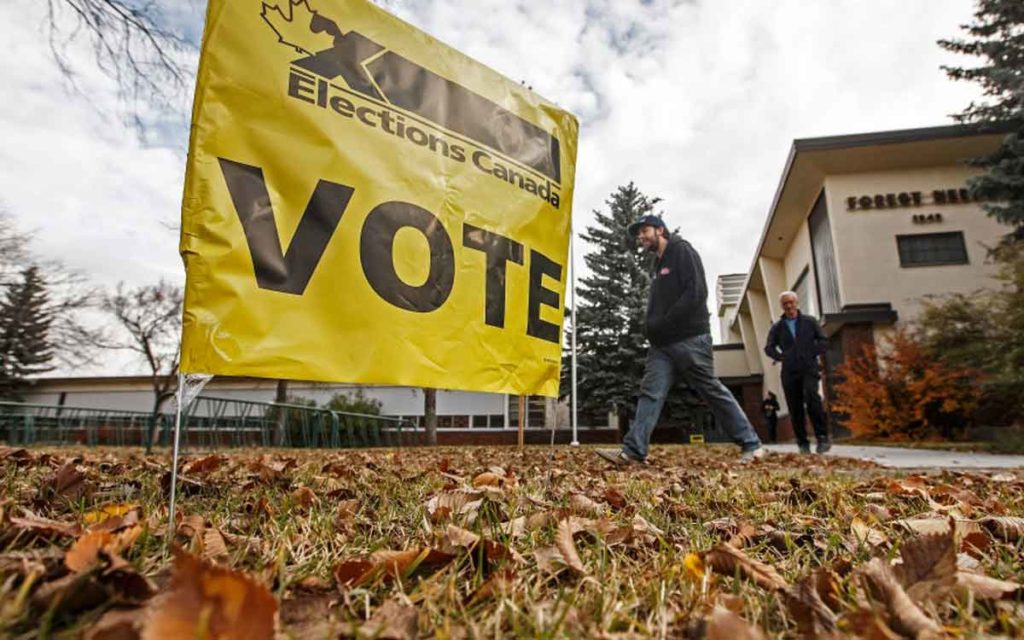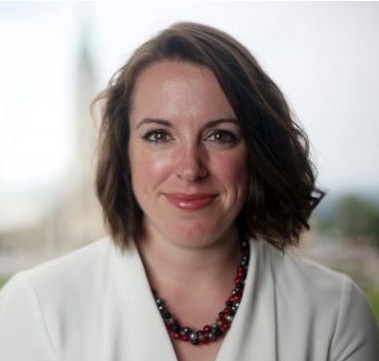
While there is much speculation about whether or not there will be a snap election this fall, Niagara Independent federal writer Kate Harrison gives five reasons why there won’t be. Photo: The Canadian Press/Jason Franson
Prime Minister Justin Trudeau is riding high in the polls, the Opposition is disorganized, and we’re in a minority Parliament, which means it is time to start Ottawa’s favourite parlour game: Election Speculation.
While there’s been no shortage of columns and social media musings dedicated to a potential snap federal election in the Fall, this writer begs you to practice the advice of Regina George in Mean Girls: like “fetch”, stop trying to make Election 2020 happen. It’s never going to happen.
I’ve been wrong before (and will be again), but there’s as many reasons why a federal election this year simply doesn’t add up. Here’s five to consider:
1) There’s already a big election taking centre-stage in 2020. Whether Canadians wish to admit it or not, a lot of political attention and news coverage is consumed by what’s happening south of the border, and our domestic politics are influenced as a result. While public opinion polls suggest a change at the White House may be likely, there’s lots of time between now and November for that to change again (and as the 2016 U.S. election showed, polls are not predictive of actual results). A good portion of the Trudeau government’s first mandate was spent navigating the relationship with the Trump administration, and they’ll want to know who they’re dealing with in the Oval Office to inform their own narrative for Canadian voters. Lastly, all Canadian politicians will want to fight the election campaign on their own terms and issues, rather than spend each stump speech responding to the rhetoric we can anticipate in the US Presidential campaign.
2) A second wave of COVID-19 has been predicted for Fall. Until a vaccine is developed, infectious disease experts and in turn, politicians, have told people to brace for new waves of COVID, with the next anticipated for this Fall. Simply put, asking voters to go to the polls (earlier than Canada’s election law stipulates) amidst a higher likelihood of infection makes an election improbable. As Canaians aged 60+ are simultaneously most likely to vote and most likely to catch COVID-19, requesting an election would be even more tone deaf. There’s also the logistical challenge of holding an election while respecting physical distancing; long lines at voting booths, passing ballots back and forth or even going door-knocking during a campaign would need a major rethink. Until the threat to the public is low, expect disease to trump democracy.
3) Elections are expensive, and the country is broke. While recent government benefit programs may leave the impression the country is awash in cash, make no mistake: Canada’s cupboards are bare. Of all the things Canadians want to see their hard earned tax dollars spent on, it is hard to imagine something would rank lower than a general election. According to Elections Canada, half a billion dollars was spent on Election 43, and while the COVID crisis is testing exactly how comfortable Canadians are with increasing debts and deficits, the prospect of spending $500M that could be better spent on COVID response is an unattractive one for many. But the cost of running an election isn’t the only financial consideration when heading to the polls: healthy and proactive fundraising is necessary for political parties to improve their chances of success.
Which brings me to point four.
4) The Opposition doesn’t want to go to the polls right now. Lacklustre war chests is a consideration for all political parties, the Opposition included. While the Conservatives have traditionally far out-fundraised other parties, there’s been little opportunity to build up the reserve since the last election, due to both the ongoing leadership race and the challenge of asking for donations during a pandemic. The absence of a permanent leader is another big reason why it is hard to see Team Blue pull the plug on the government anytime soon. Whomever the new leader is would be hard pressed to recruit candidates, generate funds, form a campaign team, develop policy, and build a national profile between the end of August and a Fall writ period. As big as the hill to climb may seem for the Conservatives, it is mountainous for the NDP, whose coffers are empty and continue to struggle in separating their political wishlist from the current Liberal government’s agenda. And don’t look to the Bloc Quebecois to dance with the other opposition parties and force an election – they’re unlikely to do much better than the seats they already hold. Given some combination of these unwilling players would need to band together to bring down the government, an imminent election seems unlikely.
5) Trudeau has all the benefits of a majority government, anyway. Of course, Trudeau *could* try to force an election on his own by asking the Governor General to dissolve Parliament early. He could make the case that the Liberals need a majority mandate to enact a recovery plan, or that uncertainty around the globe demands the certainty of a majority government to navigate rocky waters. But when considering all that the Liberals already have – a disorganized opposition, significant spending powers, an infrequent Parliament and election-esque daily press conferences – what is the need to for Trudeau fix what’s not broken?
Knowing when to hold and when to fold is as applicable in politics as it is in Las Vegas. As tempting as the poll numbers may be, don’t expect Trudeau to gamble on an election soon.





















